De Australische schrijfster Henry Handel Richardson (eig. Ethel Florence) werd geboren op 3 januari 1870 in Melbourne. Zie ook alle tags voor Henry Handel Richardson op dit blog.
Uit: The Way Home
“When, having braved the bergs and cyclones of the desolate South Pacific, and rounded the Horn; having lain becalmed in the Doldrums, bartered Cross for Plough, and snatched a glimpse of the Western Isles: when the homeward-bound vessel is come level with Finisterre and begins to skirt the Bay, those aboard her get the impression of passing at one stroke into home waters. Gone alike are polar blasts and perfumed or desert-dry breezes; gone opalescent dawns, orange-green sunsets, and
nights when the very moon shines warm, the black mass of ocean sluggish as pitch. The region the homing wanderer now enters is quick with associations. These tumbling crested marbled seas, now slate-grey, now of a cold ultramarine, seem but the offings of those that wash his native shores; and they are peopled for him by the saltwater ghosts of his ancestors, the great navigators, who traced this road through the high seas on their voyages of adventure and discovery. The fair winds that belly the sails, or the head winds that thwart the vessel’s progress, are the romping south-west gales adrip with moisture, or the bleak north-easters which scour his island home and make it one of the windy corners of the world. Not a breath of balmy softness remains.
There is a rawness in the air, a keener, saltier tang; the sad-coloured sky broods low, or is swept by scud that flies before the wind; trailing mists blot out the horizon. And these and other indelible memories beginning to pull at his heartstrings, it is over with his long patience. After tranquilly enduring the passage of some fifteen thousand watery miles, he now falls to chafing, and to telling off the days that still divide him from port and home.“
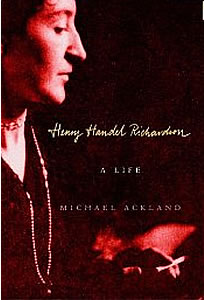
Henry Handel Richardson (3 januari 1870 – 20 maart 1946)
De Duitstalige dichter en schrijver Wolf von Aichelburg werd geboren in Pula,Transsylvanië, (destijds Oostenrijke-Hongarije, tegenwoordig Kroatië) op 3 januari 1912. Zie ook alle tags voor Wolf von Aichelburg op dit blog.
Zypresse
Zypresse du, ins kalte Blau Entfernte,
Am Wegrand eine Säule aufgerichtet,
Geschwisterlos und stumm und ohne Ernte,
Kein Traum hat je dein Trauern aufgelichtet.
Dein Stamm ist ehern, nur der schwarze Turm
Der Nadeln hat im Winde ein Bewegen,
Wird dunkel wie ein Wolkenball im Sturm,
Ist wie ein Mantelwurf um einen Degen.
Dich trug empor dein Glauben. Unbezwungen
Nahmst du den steilsten Weg aus eigner Kraft.
Nun bist du hart und ganz von Stolz durchdrungen,
In Gnadenquell getauchter Lanzenschaft.
Du bist der Berg, du bist die Einsamkeit,
Die Wolken nehmen dich zu ihrem Zeiger.
Das Farbenrauschen der bewegten Zeit
Wird stumm an dir und heilt, du Allverschweiger.
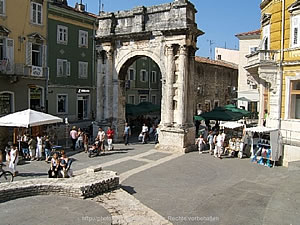
Wolf von Aichelburg (3 januari 1912 – 24 augustus 1994)
Pula
De Oostenrijkse dichteres en schrijfster Elsa Asenijeff (eig. Elsa Maria von Packeny) werd geboren op 3 januari 1867 in Wenen. Zie ook alle tags voor Elsa Asenijeff op dit blog.
Uit: Tagebuchblätter einer Emancipierten
„Wie bin ich froh, dass ich endlich geschieden bin – uf! Fast mein ganzes Vermögen ist daraufgegangen. Diese lieben Retter, die Rechtsanwälte sind kostspielige Freunde. Nun, jedenfalls bin ich frei, das ist schon etwas! Es ging eben zu schwer. Mein Gemahl hatte mich lieb. Er ist ja auch ein guter Mensch, aber immer so ein paar Stufen tiefer als ich. Das kann doch ein Weib nicht ertragen, die Hinabsteigende zu sein – eben weil sie die Empfangende im generellen Sinne ist. Und dann habe ich so meine Idee von der Mission im Menschen. Ich sagte mir: da beglückst du einen Menschen, noch dazu einen, der nicht sonderlich wert ist – wenigstens im Sinne der Gesamtheit. Du aber glaubst von dir, du könntest vielleicht deinem ganzen Geschlechte nützen. Wer ist der Minderwertige? Einer gegen ein ganzes Geschlecht! Reine Frage der grösseren Ausnutzungsmöglichkeit des eigenen Ichs.“
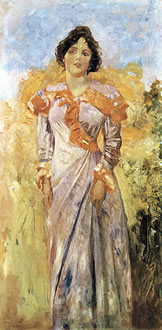
Elsa Asenijeff (3 januari 1867 – 5 april 1941)
Geschilderd door Max Klinger, rond 1904
De Amerikaanse dichter en schrijver John Gould Fletcher werd geboren op 3 januari 1886 in Little Rock, Arkansas. Zie ook alle tags voor John Gould Fletcher op dit blog.
Lincoln
I
Like a gaunt, scraggly pine
Which lifts its head above the mournful sandhills;
And patiently, through dull years of bitter silence,
Untended and uncared for, starts to grow.
Ungainly, labouring, huge,
The wind of the north has twisted and gnarled its branches;
Yet in the heat of midsummer days, when thunderclouds ring the horizon,
A nation of men shall rest beneath its shade.
And it shall protect them all,
Hold everyone safe there, watching aloof in silence;
Until at last one mad stray bolt from the zenith
Shall strike it in an instant down to earth.
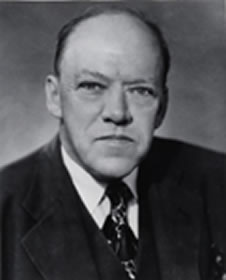
John Gould Fletcher (3 januari 1886 – 20 mei 1950)
De Franse dichter en schrijver Charles Palissot de Montenoy werd geboren in Nancy op 3 januari 1730. Zie ook alle tags voor Charles Palissot de Montenoy op dit blog.
Uit: Petites Lettres Sur De Grands Philosophes
„LETTRE 1
[…]Ce ton d’ inspiration dans les uns, d’ emphase dans les autres, si éloigné de celui de la raison qui doute, ou de la vérité qui persuade, révolta quelques gens sensés. En examinant de près des ouvrages qui promettaient de si grandes choses, ils trouvèrent que les uns étaient servilement copiés de Bacon, sans que l’ on ait jugé à propos d’ en prévenir le public ; et que d’ autres ne contenaient que des pensées mille fois rebattues, mais rajeunies, ou par un tour épigrammatique et de mauvais goût, fort à la mode aujourd’ hui, ou par un certain ton d’ audace bien propre à séduire les simples.
On donna de nouvelles définitions de quantité de choses déjà très-bien définies. On affecta pour jouer
la concision et le style nerveux, d’ embrouiller ce qui était clair. On confondit tous les genres ; et cet étrange bouleversement dans les idées et dans le style parut à quelques esprits vulgaires, la preuve
d’ un siècle abondant en génies lumineux et hardis, digne d’ être appelé siècle philosophique.
On déclara que l’ on estimait très-peu le public ; que l’ on n’ écrivait plus pour lui, et que des pensées qui pourraient… etc. . On oublia que, malgré ce petit nombre de connaisseurs, tant de fois exagéré, le meilleur livre est, à la longue, celui qui est le plus répandu, où se trouvent des beautés proportionnées à toutes les classes de lecteurs, des connaissances utiles à tous les hommes ; en un mot, qui contient le plus de vérités universellement entendues et senties.“
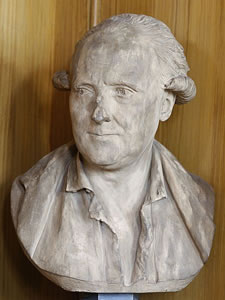
Charles Palissot de Montenoy (3 januari 1730 – 15 juni 1814)
Buste door Jean-Antoine Houdon in de Bibliothèque Mazarine, Parijs
